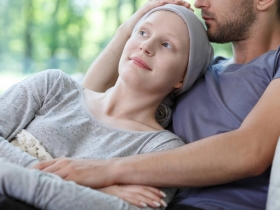Fertility After Cancer: Your Path to Parenthood
Cancer treatments can be tough on fertility, making it hard for people who want to have kids. But thanks to medical science, there are ways to keep your fertility safe. And other options for becoming a parent after cancer treatment.
How Cancer Treatment Can Affect Fertility
Treatments for cancer, like chemotherapy, radiation therapy, and surgery, can hurt fertility by damaging the parts of the body that make babies or messing with hormone levels. It’s important for people with cancer to talk about how treatment might affect their fertility with their doctors before they start treatment. (Source: American Cancer Society) This can help to understand the risks and look at the different ways to keep their fertility safe.

Ways to Keep Fertility Safe
1. Freezing Eggs (Oocyte Cryopreservation): Women with cancer can choose to freeze their eggs before treatments that might hurt their fertility. This involves boosting the ovaries to make lots of eggs, which are then collected, frozen, and kept safe for future use. Freezing eggs offers women the chance to keep their fertility safe and try for a baby later in life, even after cancer treatment.
2. Banking Sperm (Sperm Cryopreservation): Men with cancer can keep their fertility safe by banking sperm, where semen samples are collected, frozen, and kept safe for future use in treatments to help make babies. (Source: Cleveland Clinic) Banking sperm is a pretty simple and effective way to keep male fertility safe before cancer treatment. It gives men the chance to have biological children in the future, even if their fertility is hurt by cancer treatment.
3. Freezing Embryos (Embryo Cryopreservation): Couples who are dealing with a cancer diagnosis can choose to make embryos through IVF before one partner starts cancer treatment. These embryos can then be frozen and kept safe for future use, giving couples the chance to have a baby with their genes after cancer treatment. Freezing embryos offers couples who are facing treatments that might hurt their fertility the opportunity to keep their options open and build a family in the future.
Options for Having a Baby After Cancer Treatment
1. In Vitro Fertilization (IVF): For people who have finished cancer treatment and want to have a baby, IVF is a good option. This treatment involves fertilizing eggs with sperm in a lab and then putting the embryos into the uterus. IVF helps people get past the fertility problems caused by cancer treatment and have a baby with the help of science.
2. Using Donor Eggs or Sperm: Sometimes, cancer treatment means a person can’t make healthy eggs or sperm. In these cases, eggs or sperm from a donor can be used in IVF treatments to have a baby. Using donor eggs or sperm gives people the chance to become parents using donated genes, letting them experience the joy of being a parent even if cancer treatment has hurt their fertility. (Source: Cancer.Net)
3. Surrogacy: Some people who have survived cancer might choose surrogacy, where another woman carries the baby for them using either their own or donor embryos. Surrogacy gives people who can’t carry a baby because of cancer treatment the chance to have a biological child with the help of a surrogate mother.
Sources:
American Cancer Society - How Cancer and Cancer Treatment Can Affect Fertility in Females | American Cancer Society
Cleveland Clinic - Clevelandclinic.org
Cancer.Net - Having a Baby After Cancer: Fertility Assistance and Other Options | Cancer.Net






